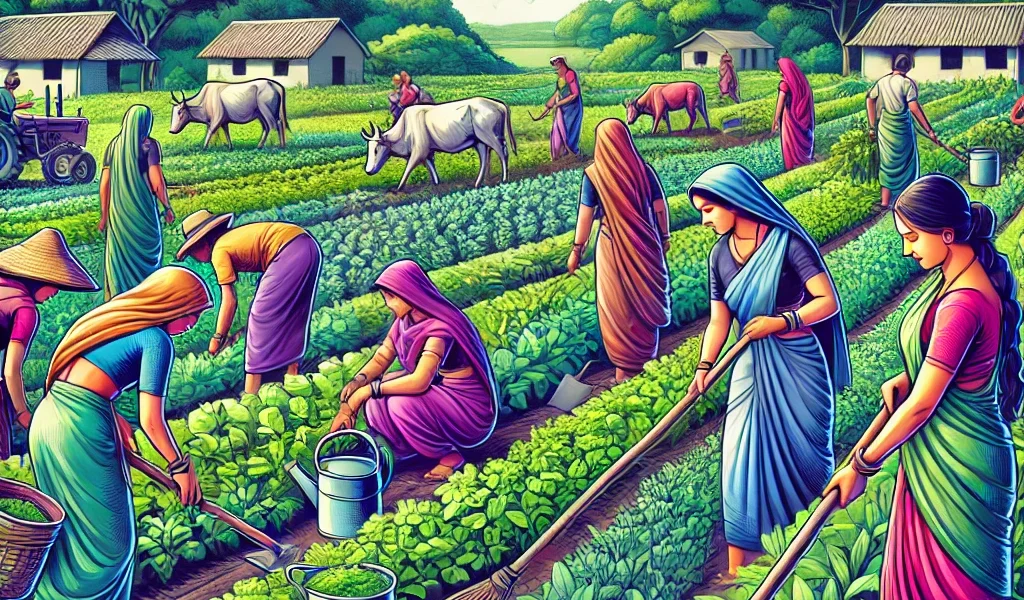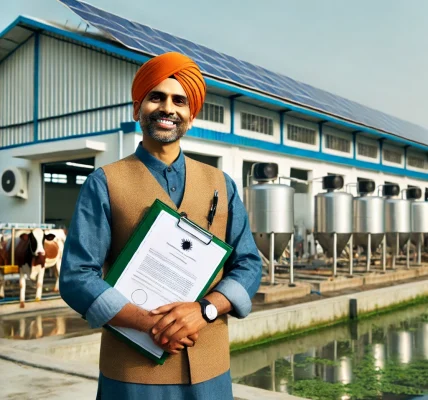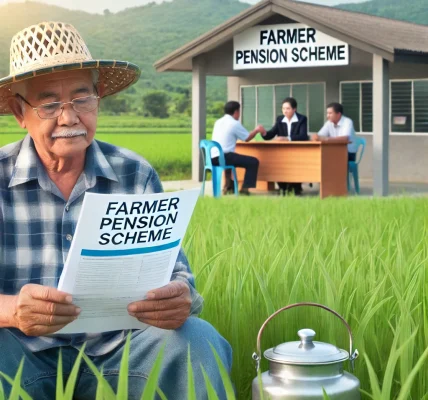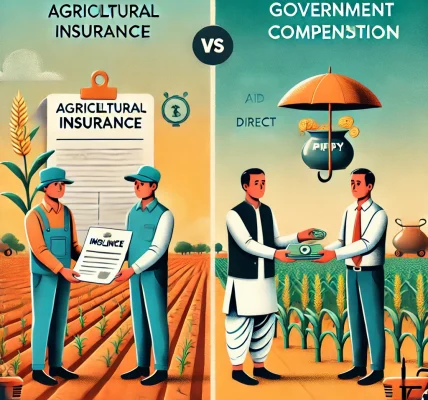Introduction
Agriculture has long been a male-dominated sector, but women play a crucial role in farming activities across India. Recognizing their contributions, the government has introduced several women-centric farming schemes aimed at providing financial support, skill development, and technological assistance to empower female farmers.
This blog explores key government schemes that support women farmers, their benefits, eligibility criteria, and the impact of these initiatives on women’s empowerment in agriculture.
Why Women-Centric Farming Schemes Matter
- Economic Empowerment: These schemes provide financial assistance and subsidies to female farmers, enabling them to become independent entrepreneurs.
- Skill Development: Training programs and technical support enhance women’s farming skills, improving productivity.
- Access to Credit & Resources: Many initiatives provide low-interest loans and grants to encourage female participation in agriculture.
- Social Upliftment: Supporting women in farming leads to greater gender equality and rural development.
Major Women-Centric Farming Schemes in India
1. Mahila Kisan Sashaktikaran Pariyojana (MKSP)
- Objective: To empower women by improving their skills in sustainable agriculture.
- Key Benefits:
- Training in organic farming, livestock management, and value addition.
- Financial assistance and self-help group (SHG) formation.
- Encourages women’s leadership in the farming sector.
- Eligibility: Rural women involved in agriculture.
2. Women Farmer Empowerment Program (WFEP)
- Objective: To increase women’s participation in agriculture by providing technical training.
- Key Benefits:
- Free training programs in modern agricultural techniques.
- Equipment and machinery support at subsidized rates.
- Networking opportunities with agricultural experts.
- Eligibility: Women engaged in farming, particularly small and marginal farmers.
3. NABARD’s Financial Assistance for Women in Agriculture
- Objective: Provides credit facilities and grants to female farmers.
- Key Benefits:
- Low-interest loans for purchasing seeds, fertilizers, and farm equipment.
- Grants for starting agribusinesses or food processing units.
- Special financial literacy programs for women.
- Eligibility: Female farmers, SHGs, and women-led agricultural cooperatives.
4. Rashtriya Mahila Kisan Diwas Support Scheme
- Objective: Recognizes and supports the contribution of women in agriculture.
- Key Benefits:
- Annual awards for outstanding women farmers.
- Training sessions on advanced agricultural techniques.
- Financial support for innovative women-led farming projects.
- Eligibility: Women actively engaged in farming activities.
5. State-Specific Schemes for Women Farmers
- Tamil Nadu: Women Farmers’ Special Assistance Scheme – Provides free seeds, organic fertilizers, and technical support.
- Maharashtra: Krishi Mahila Shakti Yojana – Offers financial grants and subsidized loans for women in farming.
- Rajasthan: Women Agripreneurship Promotion Scheme – Supports female farmers in starting agribusiness ventures.
How Women Farmers Can Benefit from These Schemes
1. Access to Financial Aid
- Women can apply for government grants and subsidies to purchase farm inputs and equipment.
- Low-interest loans help female farmers expand their agricultural activities.
2. Skill Development & Training
- Many schemes provide free training programs on organic farming, irrigation techniques, and post-harvest management.
- Women learn about sustainable farming practices to improve productivity.
3. Market Linkages & Entrepreneurial Support
- Some programs help women farmers connect with local and national markets to sell their produce.
- Women receive business development training to set up small-scale agribusiness ventures.
Steps to Apply for Women-Centric Farming Schemes
Step 1: Check Eligibility
- Visit the official Ministry of Agriculture and Farmers Welfare website or state agricultural department portal.
- Confirm if you meet the eligibility criteria for a particular scheme.
Step 2: Gather Required Documents
- Aadhaar Card and proof of identity.
- Land ownership papers or lease agreements.
- Bank account details for direct benefit transfers.
- Self-help group (SHG) membership certificate (if applicable).
Step 3: Submit Application Online or Offline
- Online: Register on the official government portal and fill out the application form.
- Offline: Visit the nearest agricultural office or cooperative bank to apply.
Step 4: Track Application & Avail Benefits
- Use your application reference number to check the status.
- If approved, benefits such as financial aid, training, or equipment subsidies will be directly credited to your account.
Success Stories of Women Farmers
Case Study 1: Kavita Devi’s Organic Farming Success
Kavita, a farmer from Uttar Pradesh, benefited from the Mahila Kisan Sashaktikaran Pariyojana (MKSP). With training in organic farming and financial support, she started her own organic vegetable farm, which now supplies produce to local markets and supermarkets.
Case Study 2: Self-Help Groups (SHGs) Boosting Women Entrepreneurs
In Tamil Nadu, a women-led SHG received funding from NABARD to start a dairy farming business. Today, the group manages a successful dairy unit and has expanded into milk processing.
Challenges Faced by Women Farmers & Possible Solutions
1. Limited Land Ownership
- Challenge: Many women farmers lack direct land ownership, affecting access to subsidies.
- Solution: The government should introduce joint land ownership policies for women.
2. Lack of Awareness
- Challenge: Many female farmers are unaware of available schemes.
- Solution: Government agencies should conduct awareness campaigns and workshops in rural areas.
3. Difficulty in Loan Access
- Challenge: Women often face difficulties in getting agricultural loans.
- Solution: Simplified loan application processes and special women-only financial schemes can improve access.
Conclusion
Women-centric farming schemes are crucial for empowering female farmers and ensuring gender equality in agriculture. By providing financial assistance, training, and market linkages, these programs help women gain economic independence and agricultural success.
By staying informed and actively applying for these schemes, women can transform their farming activities into profitable ventures, contributing to rural development and national food security.




